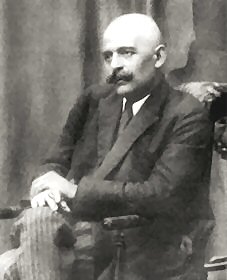A Quote by Anne Bronte
I see that a man cannot give himself up to drinking without being miserable one half his days and mad the other; besides, I like to enjoy my life at all sides and ends, which cannot be done by one that suffers himself to be the slave of a single propensity.
Related Quotes
If a person is cold and rigid, he feels within himself as if he were in a grave. He is not living, he cannot enjoy this life for he cannot express himself and he cannot see the light and life outside. What keeps man from developing the heart quality? His exacting attitude. He wants to make a business of love. He says, 'If you will love me, I will love you.' As soon as a man measures and weighs his favors and his services and all that he does for one whom he loves, he ceases to know what love is. Love sees the beloved and nothing else.
It is a curious fact that no man likes to call himself a glutton, and yet each of us has in him a trace of gluttony, potential or actual. I cannot believe that there exists a single coherent human being who will not confess, at least to himself, that once or twice he has stuffed himself to bursting point on anything from quail financiere to flapjacks, for no other reason than the beastlike satisfaction of his belly.
And often he who has chosen the fate of the artist because he felt himself to be different soon realizes that he can maintain neither his art nor his difference unless he admits that he is like the others. The artist forges himself to the others, midway between the beauty he cannot do without and the community he cannot tear himself away from.
Without self knowledge, without understanding the working and functions of his machine, man cannot be free, he cannot govern himself and he will always remain a slave. What you WANT is irrelevant, what you've CHOSEN is at hand. You and I are essentially infinite choice-makers. In every moment of our existence, we are in that field of all possibilities where we have access to an infinity of choices.
I know that in many things I am not like others, but I do not know what I really am like. Man cannot compare himself with any other creature; he is not a monkey, not a cow, not a tree. I am a man. But what is it to be that? Like every other being, I am a splinter of the infinite deity, but I cannot contrast myself with any animal, any plant or any stone. Only a mythical being has a range greater than man's. How then can man form any definite opinions about himself?.
One of the marks of a certain type of bad man is that he cannot give up a thing himself without wanting every one else to give it up. That is not the Christian way. An individual Christian may see fit to give up all sorts of things for special reasons--marriage, or meat, or beer, or the cinema; but the moment he starts saying the things are bad in themselves, or looking down his nose at other people who do use them, he has taken the wrong turning.
One of man's important mistakes, one which must be remembered, is his illusion in regard to his I. Man such as we know him, the 'man-machine,' the man who cannot 'do,' and with whom and through whom everything 'happens,' cannot have a permanent and single I. His I changes as quickly as his thoughts, feelings and moods, and he makes a profound mistake in considering himself always one and the same person; in reality he is always a different person, not the one he was a moment ago.
What a wee little part of a person's life are his acts and his words! His real life is led in his head, and is known to none but himself. All day long, the mill of his brain is grinding, and his thoughts, not those of other things, are his history. These are his life, and they are not written. Everyday would make a whole book of 80,000 words -- 365 books a year. Biographies are but the clothes and buttons of the man -- the biography of the man himself cannot be written.
Temperance referred not abstaining, but going the right length and no further...of course it may be the duty of a particular Christian, or any Christian, at a particular time, to abstain from strong drink, either because he is the sort of man who cannot drink at all without drinking too much, or because he wants to give the money to the poor, or because he is with people who are inclined to drunkenness and must not encourage them by drinking himself. But the whole point he is abstaining, for a good reason, from something he does not condemn and which he likes to see other people enjoying.
An artist is he who has his center within himself. He who lacks this must choose a particular leader and mediator outside of himself, not forever, however, but only at first. For man cannot exist without a living center, and if he does not have it within himself, he may seek it only in a human being. Only a human being and his center can stimulate and awaken that of another.





































